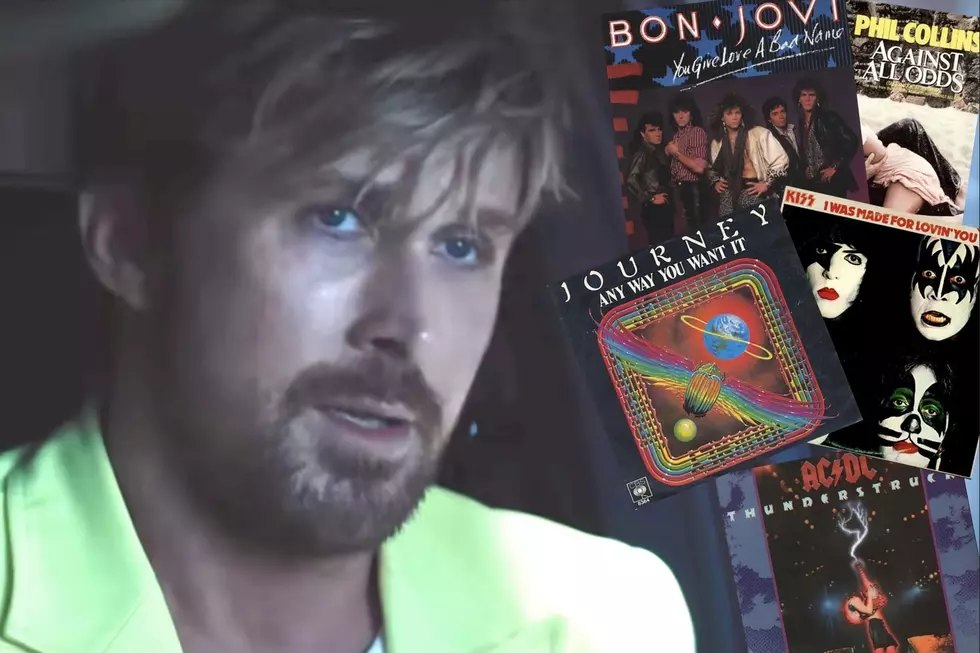
How Is the Resurgence of Vinyl Impacting Our Environment?
The music industry has marked more than a decade of phenomenal growth in vinyl sales, but the question of sustainability remains.
The figures are no doubt impressive: Some 14.3 million albums were shipped in 2017. Sales were up almost 200 percent year over year through the end of April 2019.
And that's only part of the story. Those numbers don't include records sold directly to fans by touring bands or via individual sites, not to mention second-hand sales. "What the vinyl industry doesn't really necessarily recognize," Ryan Wilson of the Concord Music Group said in 2017, "is that there is a vinyl culture that lives outside of the new-release cycle, outside of Nielsen SoundScan and consumption charts that will always be there."
Unfortunately, there are a series of hidden costs associated with all of that great music – costs borne directly by our over-stressed planet.
Most of the production of vinyl recordings is done with old-moded production processes dating back to the '70s. That starts with the steam-driven, energy-sucking press on which albums are made. The source material contains harmful ingredients, making it a dangerous addition to any landfill.
Decades ago, records were made out of a natural resin called shellac, but they've long since been replaced by a more resilient vinyl – specifically polyvinyl chloride. PVC is derived in part from fossil fuels and non-recyclable. Plenty of process improvements have taken place in this industry as well, but it's still thought to be carcinogenic. Shellac records were brittle and prone to damage from the elements, whereas PVC records last much longer. In fact, they might literally take centuries to decompose, under the right landfill conditions. In the meantime, any records ending up in landfills could be leaking hazardous material into the surrounding environment.
Today's albums are also home to a surprising number of toxic modern additives, including heavy metals and carbon black. Companies are still using lead as a stabilizer during the album-pressing process, many years after the chemical was prohibited in products like paint. "There aren't too many industries that allow you to use lead these days," noted Rob Brown, CEO of the Toronto-based record-pressing equipment company Viryl Technologies, in a 2018 talk with Bloomberg.
Unlike bottles, single-use straws or plastic bags, the average album isn't likely to end up in a landfill, however. "People tend to hold on to records," Duncan Oswald, a senior consultant at the environmental research firm Eunomia, told Bloomberg. "There are certainly many more important environmental problems to worry about."
In truth, however, the whole process is typically antiquated. Pressing machines are powered by steam boilers that require fossil fuels in order to run; the liquid used is usually treated with anti-corrosive chemicals that prevent rusting, and that leads to additional wastewater. Then there is the act of printing the labels and sleeve, then getting the product to consumers.
"The majority of waste is in the shipping area," Ellen Kanamori of New York City's Superior Elevation record shop told Medium in 2018. "To ship a record we need mailers, cardboard pads, bubble wrap. And every time we order new mailers and new pads, they all come in a huge box. It's all recyclable but it still adds waste."
The ink used for the liner notes and cover art is traditionally solvent-based. Records are still shrink-wrapped in plastic before being loaded onto a carbon-emitting shipping vehicle.
"One of the first things we tried looking at was shrink-wrap replacement," Sean Preston, head of manufacturing for London's Ninja Tune, told Yahoo! in 2019. "You could not use shrink wrap at all, but the problem with that is, quite a few territories in Europe will do shrink wrap themselves. Just because we're not doing it doesn't mean someone else down the chain won't."
Ninja Tune, which also has offices in Los Angeles, is part of a growing number of forward-thinking companies trying out new production methods, carbon-neutral concepts and next-gen materials, hoping to minimize their impact on the world around us. For example, record sales from Ninja Tune have helped fund a hugely successful clean-water project in India.
Jack White's Third Man plant in Detroit has employed a closed-loop water system since 2017, minimizing wastewater through recycling. Camarillo, Calif.-based Record Technologies uses natural gas rather than traditional fossil fuels. Montreal-based TC Transcontinental works with recycled or sustainably sourced paper products. Viryl Technologies has launched a steamless press, which is powered by electricity – and could conceivably run on renewables.
"A lot of companies are still using old technology and presses from the '70s or '80s with very poor yields, which results in a lot of waste," Viryl Technologies' Alex DesRoches told Medium. "Now that there are new technology options, it is possible to run an operation with much higher yields than three or four years ago."
Green Vinyl Records, a consortium of eight Dutch companies, is having success with another new approach: "We found that by using injection molding we could make records much faster, and use about 60 to 70 percent less energy than the old pressing machines," project manager Pieter van Ettro told Bloomberg. That's because these injectors have made the steam boilers which were traditionally used to heat the vinyl functionally obsolete. "It also creates less waste and produces a product that is completely recyclable," Ettro added.
Some bands have taken up the cause too: Pink Floyd and Coldplay attempted to make the release of 2001's Echoes and 2002's A Rush of Blood to the Head carbon neutral by donating proceeds to plant new trees.
Even so, a bigger issue may be looming: There is a worry that a wider ban might threaten the raw materials currently used to make most albums.
Germany, for instance, banned PVC disposal in landfills back in 2005, and has joined Sweden in moving toward discontinuing it in all uses. More than 60 cities in Spain have been declared PVC free. Europe first began discussing a ban on PVC in items like toys back in 1999; the U.S. followed in 2008. The European Union could be considering stricter controls, according to the Guardian. That would have a huge impact on GZ Media, the world's largest producer of vinyl records. Based in the Czech Republic, GZ presses about 30 million albums a year, including signature items like the Bruce Springsteen Collection and U2's limited-edition 30th anniversary Joshua Tree box.
Those seeking an alternative have had some initial breakthroughs. Duplication, a Canadian firm that manufactures vinyl records and compact discs among other products, said it uses 100 percent re-purposed materials. Green Vinyl Records is also experimenting with other more environmentally friendly options.
Unfortunately, these new ideas aren't gaining the same traction as adjacent improvements in the record-pressing process – principally because the old material is still so well regarded. "PVC is a very stable plastic with an extremely low flammability and low static charge, so it has always been the ideal material for records," Matt Earley, a vice president at the Cleveland-based Gotta Groove pressing plant, told Bloomberg.
Gotta Groove tried making records with the same material utilized in mass-produced plastic bottles, for instance, and it couldn't meet sound standards. PVC is also more resistant to wear, explaining its wide usage in household plumbing, counter tops and flooring.
"PVC manufacturers are constantly taking steps to produce a more sustainable product," DesRoches told Medium. "One of the big changes most of the industry has embraced is a move away from lead-based PVC to a more environmental friendly stabilizer in calcium. On top of this, a lot of plants are taking a modern approach to manufacturing by adding new technology and updating their infrastructure to promote lower power consumption and higher yields which reduce the amount of waste significantly."
The answer might end up being a shift toward so-called "high-definition" vinyl, a laser-cut process which promises to avoid the toxic chemicals and nickel-plated stampers used in the traditional pressing approach.
Gunter Loibl, founder of an Austria-based startup that has received $4.8 million in funding for research on this topic, said the HD technique could yield up to 30 percent more playing time per disc. Album orders could also be completed in days, rather than months – a significant upgrade for an industry riven by supply issues. More than that, Loibl says Rebeat Innovation is developing a far less environmentally damaging process.
Some are betting on 3D printing, but – continuing a trend – questions remain about how it will actually sound. Chicago's Trax was among the labels that tried recycling vinyl to make new albums, but it had the same problems. The easiest path to a greener music industry, at least for now, seems to involve reducing production inefficiencies. "There are other companies working on potential alternatives, or hybrid PVC formulations," Gotta Groove's Earley noted. "I think we and others will continue to experiment."
In the end, Earley believes that all of this activity is happening because albums remain a sound investment – financially and ethically.
"For music fans, I believe a vinyl record is a thing worthy of consideration and adoration," he told Bloomberg, "and as long as you don't throw your records in the trash after a couple plays, the environmental concern of consuming records is minimal."
Classic Rock’s Top Acts
More From Ultimate Classic Rock









